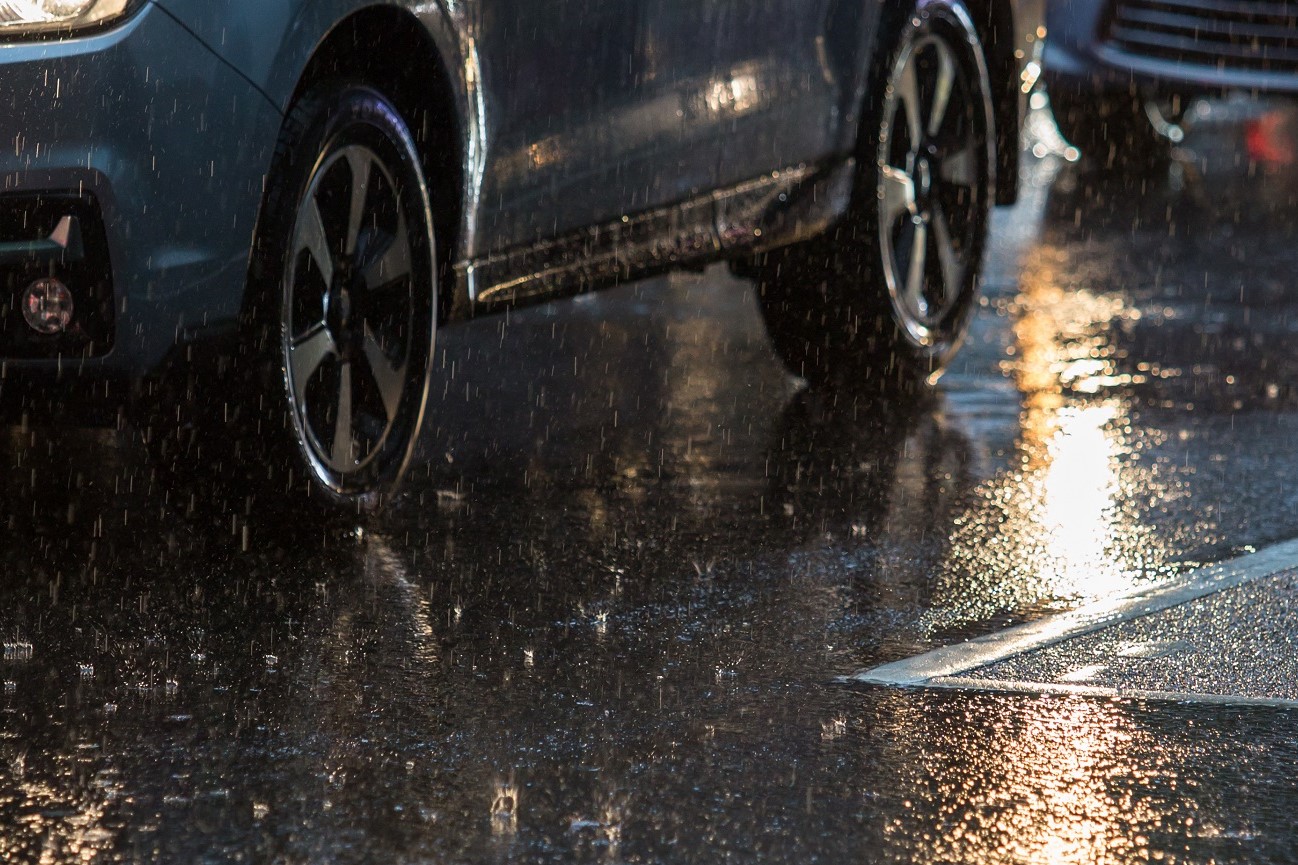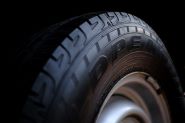Tyres In the Wet: How to Stay Safe
You don’t need us to tell you that wet and rainy weather can make driving more difficult, but did you know the condition of your tyres plays a big role too? Worn tyres increase the risk of aquaplaning in bad weather since you’ll have less friction with the road.
So, although there’s not much we can do to stop it raining (sorry), we can make sure that your tyres are ready for bad weather. And there’s no better time – October is Tyre Safety Month! That’s why we’re breaking down how to navigate wet journeys with your tyres, and all the things you can do to make sure your wheels are ready for whatever the weather throws at them.

How to check your tyres
Scary stat time: did you know that 1 in 5 drivers have NEVER checked their tyres? Old and worn tyres can be dangerous whatever the weather, but it’s even more important to keep an eye on your tread when the darker nights and wetter weather hit.
Here’s an easy-to-remember list for checking your tyres – ACT. Cover all three of these and you should have a clearer picture of the safety of your tyres:
- Air pressure: are they too empty, or even too full? You’ll usually find the recommended pressure for your car in your door jam, or just pop your reg into our handy online tyre pressure checker.
- Condition: is there any visible damage, like lumps, bumps, or cracks? Or any signs that your tyres are nearing the end of their life?
- Tread depth: your tyre tread is what gives you grip on the road, like the tread on the sole of your shoes. 1.6mm is the legal minimum depth, but you should be changing them before they get that low to keep a safe grip.
Need a hand checking? Or maybe you’d feel more reassured if an expert had a look? Either way, we’re here to help.
Book a free tyre check at your local National Tyres and Autocare, and one of our skilled technicians will make sure you’re ready to hit the road safely – and it’s completely free!
How can you tell if your tyres are losing grip on a wet road?
If you’ve never aquaplaned before you might not be familiar with the feeling, or even what it is. Aquaplaning happens when a layer of water builds between your tyres and the road, wiping out your grip and often causing you to spin.
But how do you know if you’re losing grip? There can be a few telltale signs before you spin:
- The steering might feel lighter
- The engine might suddenly get louder
- The backend of your car might drift from side to side
If you do start to aquaplane, don’t panic. Here’s what to do:
- Don’t brake suddenly – you’ll only spin more
- Gently reduce your acceleration
- Hold the steering wheel straight and wait to regain control
- Only once you’ve got your grip back, gently begin to brake
Stopping distances in wet weather
Another thing to be wary of in wet weather is how long it can take you to come to a stop. Your stopping distances can more than double on wet roads because your tyres have less grip. So, it’s important to make sure your tyres are in good condition, and there are some things you can do to make your journeys safer.
- Keep a good distance from the car in front of you – since it’ll take twice as long to stop, you should be twice as far behind.
- Be extra aware of your surroundings – rain or snow can make it harder to see potential hazards, so keep an eye out for anything that might cause you to brake so you can be ready ahead of time.
You can find out more about stopping distances in our blog.
Replace your tyres ready for wet weather
Our best safety tip is to make sure your tyres are ready for when the weather turns. You’re always going to have to make some wet weather journeys, but keeping your tyres properly inflated, with no damage and a good grip, will hugely reduce the risk of an accident.
Time for replacements? The wetter months are the perfect time to switch to all-season tyres, also known as all-weather tyres. These speciality tyres are highly adaptable and are designed to handle the conditions all year round. They’re a great alternative to winter tyres, which suit the more extreme snowy weather of deep winter. They have a deeper tread than summer tyres for a super-solid grip on the road, and a much longer life on your car.
If you do need new tyres, we can help. At National Tyres and Autocare, we stock a huge range from trusted brands like Bridgestone, Pirelli, and Avon. There’s a tyre to suit every budget, and we offer a range of finance options to make sure you don’t have to sacrifice safety on the road because of cost.
Shop tyres
You can also learn more about keeping your tyres in check from TyreSafe, the UK’s leading authority on tyre safety.
What are the risks of dangerous tyres?
Every year, dangerous tyres lead to around 5,000 convictions, 900 casualties, and 160 deaths or serious injuries. Not only that, but illegal tyres can actually end up costing you more than the price of a new set: you could face fines of up to £2500 and 3 points on your licence per illegal tyre, not to mention that if you're found to have illegal tyres in an accident, it can invalidate your insurance.
A free tyre check from National can make sure your four wheels are ready for the road. Book in now to stay safe on your journeys.
Book a Free Tyre Check
Want to know more about looking after your tyres? Check out our online tyre safety hub.
Did you enjoy this blog post? |16 people found this review helpful



 Sign up for SPECIAL OFFERS
Sign up for SPECIAL OFFERS
